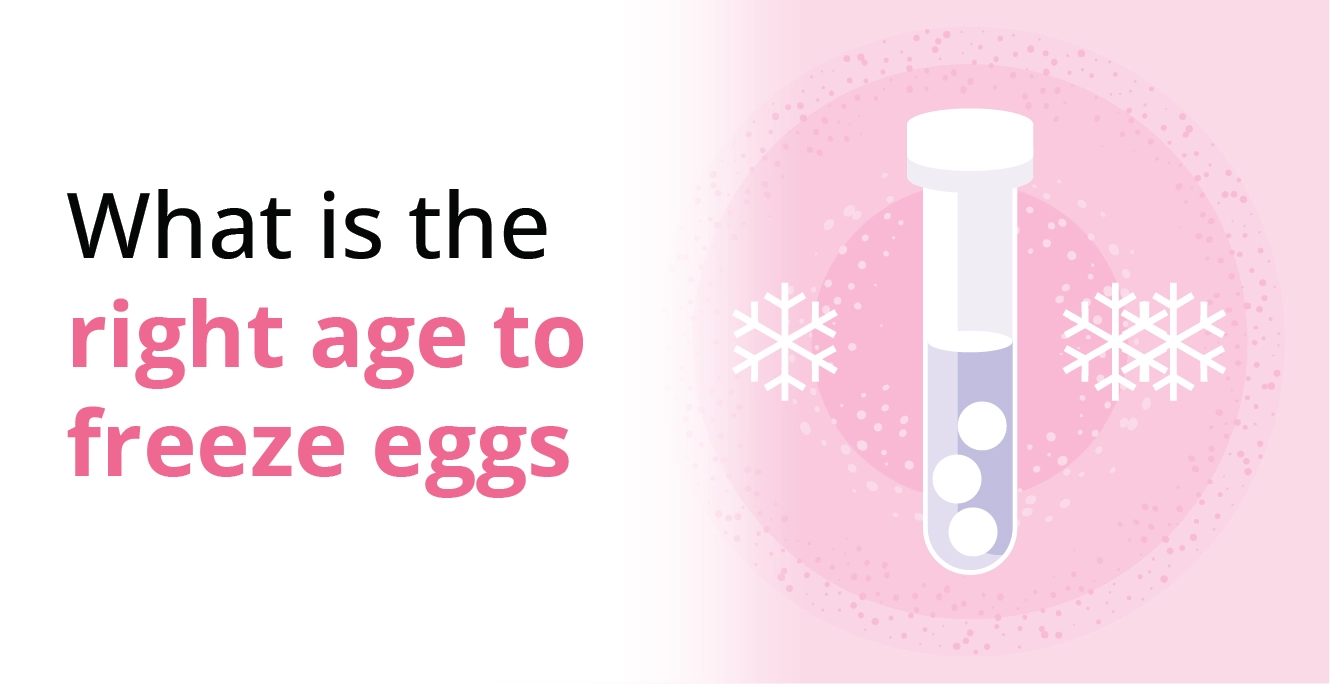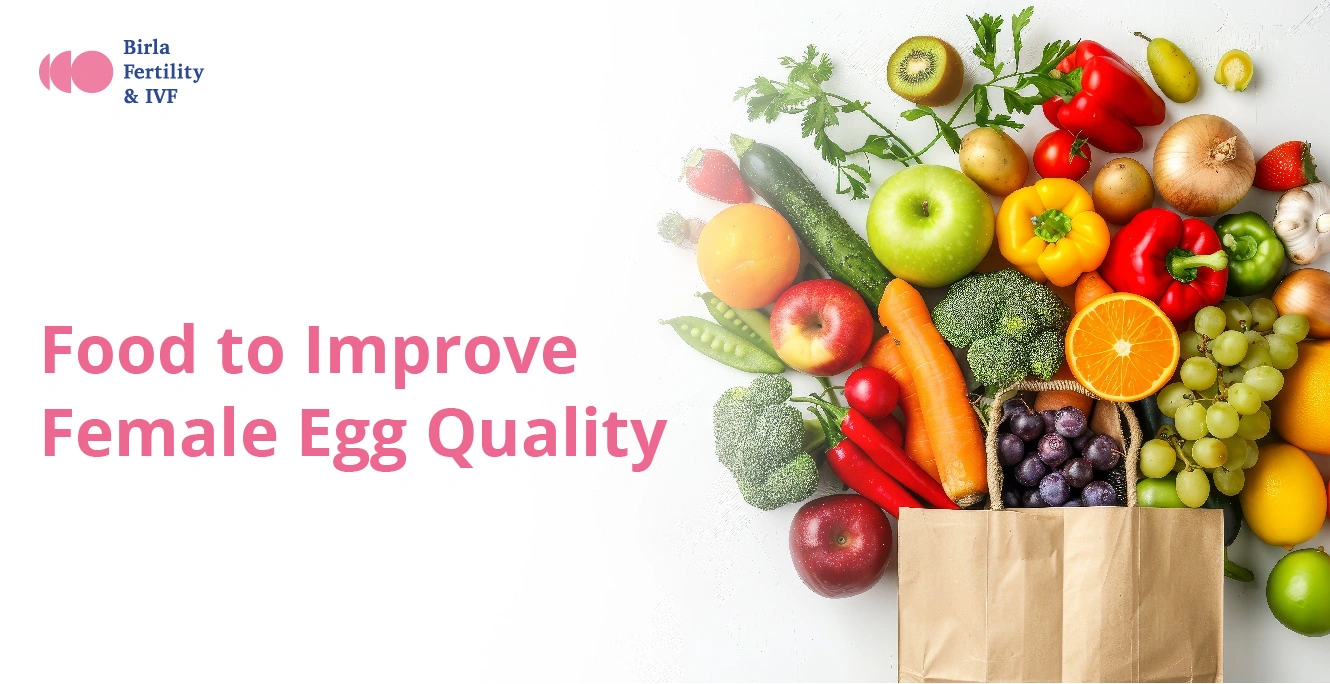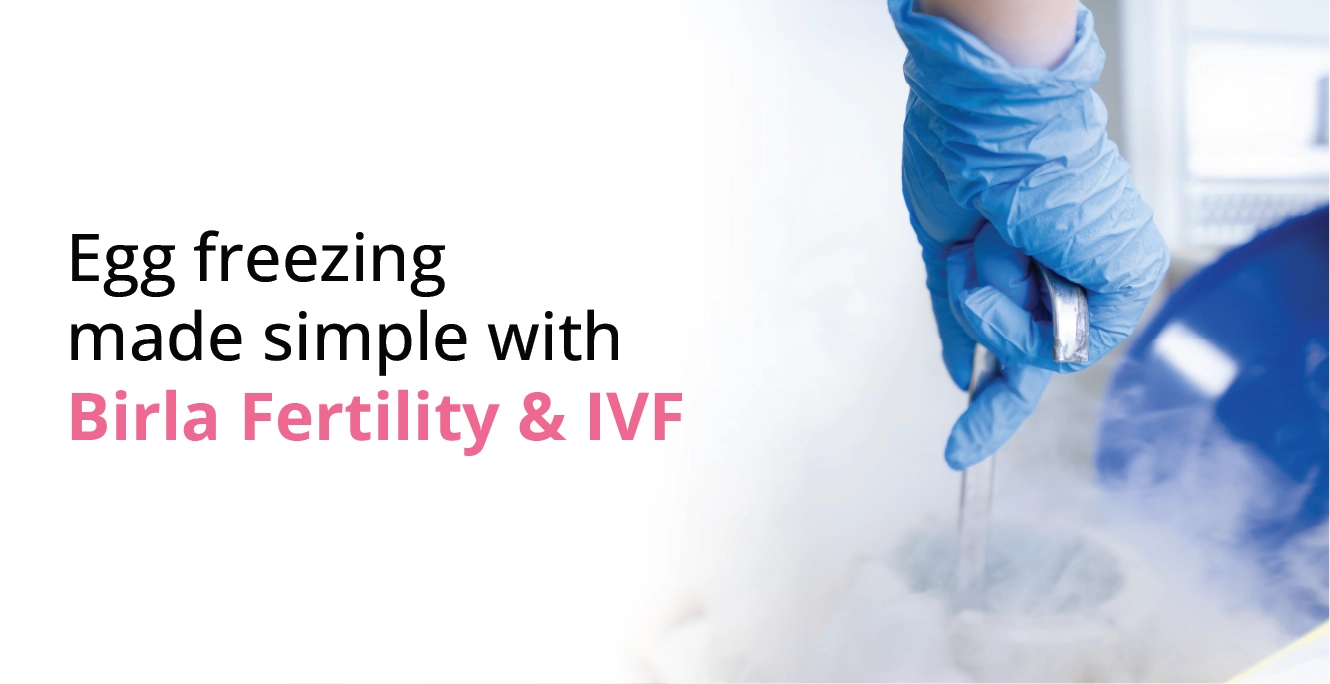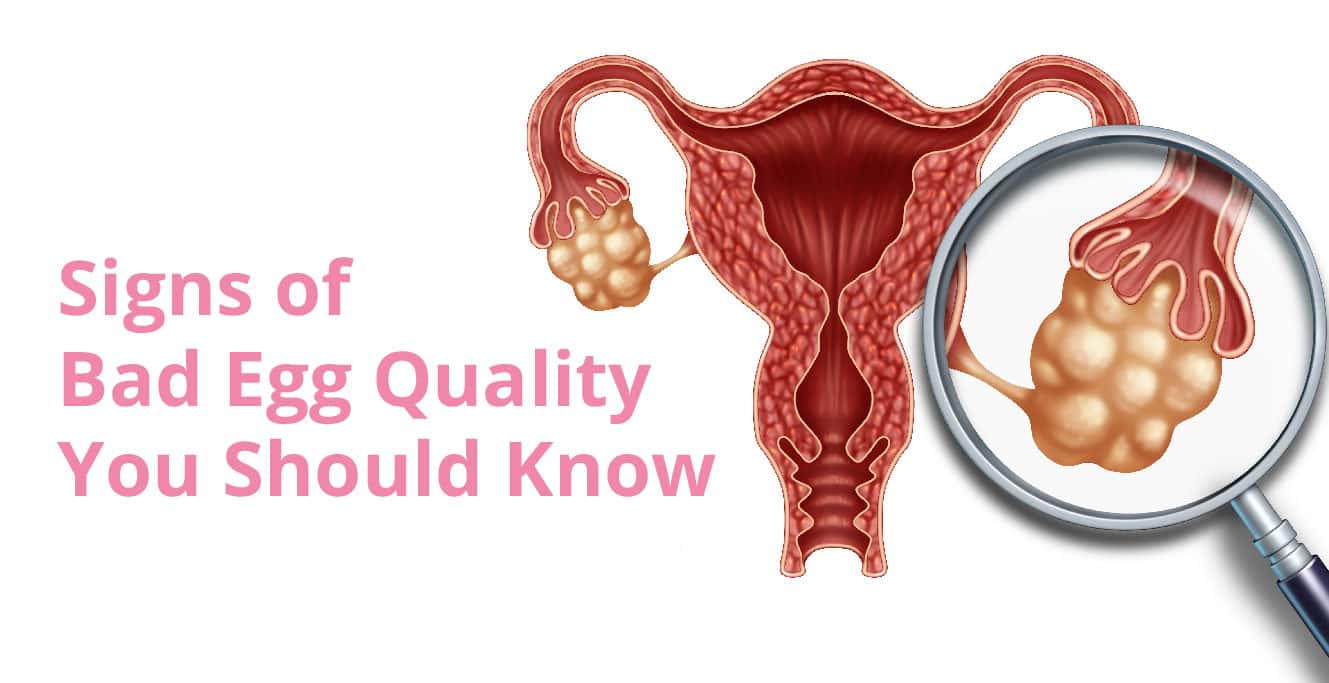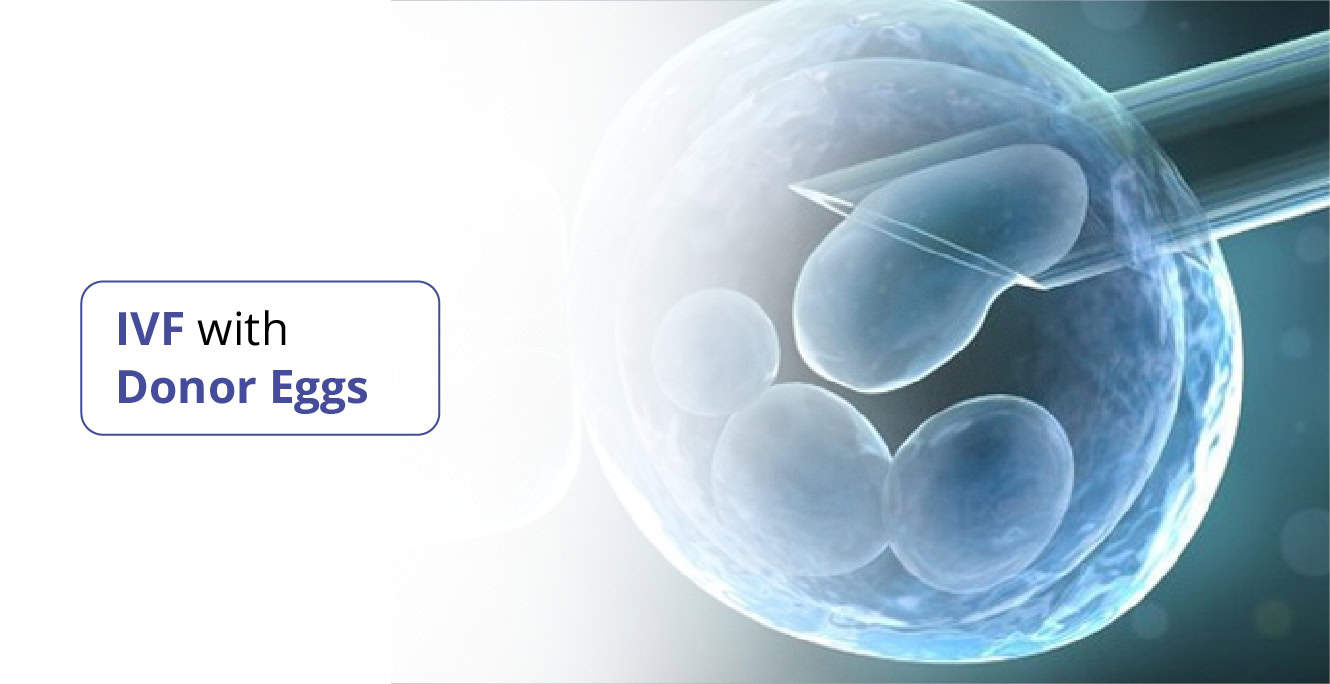
IVF with Donor Eggs: What Are Your Chances?

Table of Contents
- What is IVF?
- Understand IVF with Donor Egg:
- Success Rates & Factors Influencing IVF with Donor Egg
- Emotional Consideration for IVF with Donor Eggs
- Navigating the Process of IVF with Donor Eggs
- Social and Ethical Aspects of IVF with Donor Eggs
- What is the Donor Egg IVF cost?
- Conclusion
- Frequently Asked Questions (FAQs)
In Vitro Fertilisation (IVF) using donor eggs has become a game-changing alternative for people and couples who are having difficulties conceiving because of poor quality or scarce donor eggs. This thorough manual examines the complex procedure of in vitro fertilisation (IVF) using donor eggs, exploring the elements that affect success rates, the psychological implications of the process, and important things to think about for anyone thinking about taking this route to parenthood.
What is IVF?
In Vitro Fertilisation (IVF) is a cutting-edge infertility treatment that helps infertile couples become pregnant. There are multiple crucial steps in the process:
In order to promote the production of numerous eggs within the ovaries, ovarian stimulation is first started. The next step is to do a modest surgical surgery to retrieve these eggs.
After the eggs are recovered, sperm from a donor or partner is gathered and added to the eggs in a lab dish. It is through this mechanism that fertilisation can take place externally.
The resulting embryos’ development and quality are constantly observed. PIG testing may be used to evaluate genetic health in specific circumstances.
One or more of the embryos are carefully chosen for implantation into the woman’s uterus after they reach an ideal stage. This signifies the last stage of a successful implantation.
Many singles and couples struggling with infertility have found hope in IVF, which offers an assisted reproductive technology-based route to fatherhood. Improvements in IVF technology keep raising its success rates, which makes it a popular and practical option in the field of reproductive medicine.
Understand IVF with Donor Egg:
A woman chooses in vitro fertilisation (IVF) with donor eggs, frequently as a result of problems with the quality or availability of her eggs. The recipient’s uterus receives the fertilized eggs and the resultant embryos after sperm fertilisation. In light of decision-making, a thorough analysis of one’s own beliefs and interests, medical examinations, and consultations with reproductive specialists are necessary to determine whether IVF with donated eggs is the best option.
Success Rates & Factors Influencing IVF with Donor Egg
IVF with donor eggs typically has high success rates, frequently exceeding those of conventional IVF. Nonetheless, a number of variables affect the overall likelihood of success, such as:
- Quality of Donor Egg: The egg donor’s age and general health have a big influence on how well IVF works. Higher-quality eggs from younger donors are frequently used, which increases the chances of successful fertilisation and implantation.
- Uterine Health of Recipient: An important factor is the recipient’s uterus condition. A complete assessment guarantees that the uterus is capable of supporting a healthy pregnancy and is open to implantation.
- Sperm Quality: Another important consideration is the calibre of the sperm utilised in fertilisation. To maximise success rates, all male factor infertility concerns must be assessed and treated.
Emotional Consideration for IVF with Donor Eggs
IVF treatment can take a toll on your emotional health, therefore, it is important to understand the significance and emotional consideration for IVF with donor eggs. Keep the following aspects in mind:
- Being emotionally prepared: Using donated eggs to begin IVF might cause a variety of feelings. It’s critical that people and couples emotionally prepare for the particularities of this reproductive journey.
- Honest Communication: It’s essential for partners to communicate honestly and openly. Talking about emotions, hopes, and worries can bolster the emotional fortitude required for the procedure.
- Support System: Creating a strong support network including friends, family, and counselling services will help sustain you emotionally while going through IVF
Navigating the Process of IVF with Donor Eggs
- Donor Selection: When selecting a donor, a number of aspects must be carefully taken into account, such as physical qualities, medical history, and, in certain situations, shared traits with the recipient.
- Legal and Ethical Consideration: Legal agreements that are unambiguous and clearly define each party’s obligations and rights are essential. The procedure includes addressing ethical issues including future interaction and anonymity.
- Fertilisation and Embryo Transfer: The process of fertilisation takes place in a lab, and the quality of the resultant embryos is observed. The recipient’s uterus is then used to receive a carefully timed transfer of a chosen embryo.
- Pregnancy Testing and Beyond: The outcome of the procedure is determined by a pregnancy test after embryo transplantation. If all goes well, the recipient can start prenatal care and start the process of becoming a parent.
Social and Ethical Aspects of IVF with Donor Eggs
- Confidentiality and Openness: It is a personal decision to have an open or anonymous agreement with the egg donor. It is crucial to comprehend the ramifications and to be open and honest about these decisions.
- Changing Perceptions: Views on IVF using donor eggs and other assisted reproductive technologies are always changing in society. Conversations that are more inclusive benefit from acknowledging and appreciating differing points of view.
What is the Donor Egg IVF cost?
The donor egg IVF cost can vary from one individual to another based on various factors. On average, in India, the cost of IVF with donor eggs is Rs. 365,750. However, it is important to understand the factors that can impact the final cost of IVF with donor eggs. Some of them are:
- Donor compensation: A sizeable portion of the expenses goes into paying the egg donor. Donors may earn different compensation amounts according to their location, experience level, and educational background.
- Agency Fees: There will be fees for the services of an egg donation agency, such as coordination, screening, and donor recruiting if you decide to engage with them.
- Medical Evaluation and Screening: A thorough medical evaluation and screening are performed on both the recipient and the egg donor. The overall cost is increased by these medical procedures.
- Legal Fees: The cost of creating legal agreements between the donor, receiver, and any other parties involved is covered by legal expenses. This guarantees parental rights and obligations are clear.
- IVF Clinic Charges: The medical procedures, which include egg retrieval, fertilisation, embryo transfer, and any required laboratory testing, are charged for by the IVF clinic.
- Medications Costs: These incur additional costs for the recipient’s preparation for embryo transfer as well as for the donor’s ovarian stimulation. The cost of medication might vary according to a person’s needs.
- Insurance Coverage: Different insurance policies cover IVF using donated eggs. While some plans might just cover a portion of the surgery, others might not cover anything at all.
- Location of the IVF Clinic: The total cost of donor egg IVF may vary depending on the cost of living and healthcare services in a given area.
- Number of IVF Cycles: The overall cost may vary depending on how many IVF treatments are necessary to successfully conceive a child. Higher costs could be incurred with more cycles.
- Additional Required Procedures: The total cost is increased if further procedures are used, such as assisted hatching or pre-implantation genetic testing (PGT).
Conclusion
Using donor eggs to start an IVF cycle is a brave step towards achieving children. Success rates are encouraging, but moral and emotional considerations are just as important. By embracing the intricacies of the process, comprehending the elements that impact success, and cultivating transparent communication, individuals and couples can traverse this route with fortitude, optimism, and the possibility of a rewarding family-building expedition. If you are looking for IVF with donor eggs, consult our fertility expert today, you can either give us a call directly at the number above or schedule an appointment by completing the given form. Our coordinator will get in touch with you soon to discuss your needs and set you up with the most qualified fertility specialist at Birla Fertility & IVF.
Frequently Asked Questions (FAQs)
- Is IVF with donor eggs safe?
Yes. IVF is an evolved technique and a safe procedure. However, it is always advisable to go to reputed clinics to increase the chances of success rate of IVF with donor eggs.
- Are there any risks associated with IVF with donor eggs?
IVF with donor eggs is a safe procedure but like any other treatment, this process is also associated with potential risks. However, these risks and complexity of the same may vary from one individual to another based on the criticality of the situation. Some often potential risks associated with IVF with donor eggs are:
- Bleeding
- Infection
- Injury to blood vessels
- Do I get a choice in choosing donor eggs?
Yes, you have the option to choose a donor egg according to your requirements. But there are several factors that one should keep in mind before choosing the donor eggs, such as:
- Family and medical history
- Race, ethnicity, and heritage
- Academic and career
- Where can I find Donor Eggs?
As per guidelines set by the Indian Council of Medical Research, Egg donors are sourced from licensed government agencies where they undergo stringent screening to ensure the quality of harvested eggs while safeguarding the health of the donors.
- What should I look for in an egg donor?
Patients can specify physical characteristics like height which they desire in the donor as well as the blood type. The identity of the donor is kept strictly confidential as per government guidelines.
- What is the difference between a fresh Donor Egg and a frozen Donor Egg?
In a treatment cycle with “fresh” donor eggs, the patient (recipient) also undergoes hormone therapy alongside the donor to prepare the uterus for the embryo transfer process. If frozen donor eggs are used, the transfer is done when the patient’s uterine environment is optimal. Hormone based medications can be recommended if required.
- How are egg donors screened?
ICMR guidelines state egg donors must be between the ages of 21 years – 35 years, with no history of genetic disorders. They are screened for viral markers like HIV and Hepatitis. Ovarian reserve testing is done to ascertain the quality of eggs in the donor.
Our Fertility Specialists
Related Blogs
To know more
Birla Fertility & IVF aims at transforming the future of fertility globally, through outstanding clinical outcomes, research, innovation and compassionate care.
Had an IVF Failure?
Talk to our fertility experts

 Our Centers
Our Centers





